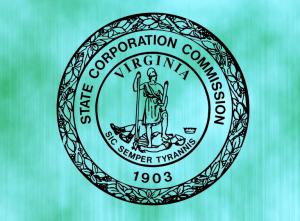Rate Case Roundup: Virginia

Although largely backing a settlement tendered in another natural gas LDC rate docket, the Virginia State Corporation Commission did not approve all terms of the stipulation.
Rather, the commission directed that certain modifications be made to a couple of the provisions therein. More specifically, the commission rejected that part of the agreement that would have permitted the LDC, Washington Gas Light Company (WGL), to implement a targeted conversion program (TCP) through which to entice currently all-electric consumers to convert their heating source to natural gas on a neighborhood-by-neighborhood basis.
In its petition for rate relief, the company had sought to raise its revenue requirement by approximately $45.6 million, although the LDC admitted that a little less than half of that amount ($22.3 million) is already being collected outside of base rates via a SAVE charge, which funds the state-enacted Steps to Advance Virginia's Energy plan. The settlement ultimately crafted by the parties denotes an overall increase of $34 million, or $14.1 million net of the SAVE costs.
The company's filing also had relied on a ROE of 10.25%, a figure with which no other party assented. After negotiation and analyses of various ROE cost models, the settling parties arrived at a ROE range of reasonableness of 9.0% to 10.0%. The midpoint of that range was designated as the LDC's authorized ROE.
In elaborating on the different components of its rate plan, WGL drew attention to its efforts to institute programs that would expand its customer base. As examples, it cited the TCP as well as a pilot study of bringing service to the Town of Front Royal, Virginia, a community about 70 miles from Washington, D.C. where WGL is headquartered. The stipulation embraced both of those projects.
The commission, however, listed several reservations it had about the TCP. It pointed out that WGL had indicated that once 20% of the customers in a target market have pledged to convert to natural gas, the company would commence a detailed economic analysis to ascertain whether it would be cost-effective to proceed with extending service into that target area. The LDC stated that its analysis would assume at least 60% of the neighborhood eventually committing to taking natural gas service.
According to the commission, though, WGL had provided no documentation for the reasonableness of that 60% minimum penetration level. The commission expounded that to extend its facilities in an efficient manner, the LDC would have to construct facilities to serve all customers within a particular area, not just 60% of them. Thus, the commission cautioned, if the company falls short of that 60% enrollment threshold, all customers would be at risk of having to shoulder the costs of the extensions.
The commission stated that it was not against conversion programs per se, but it simply could not let the TCP as set forth in the settlement go forward absent some changes in the plan that would shield nonparticipants from the costs of system expansions that turn out to be underutilized or otherwise uneconomic. Re Washington Gas Light Co., Case No. PUE- 2016-0001, Sept. 8, 2017 (Va.S.C.C.).



